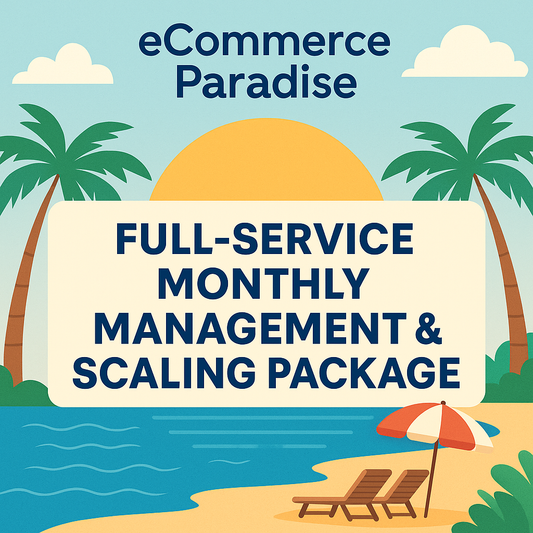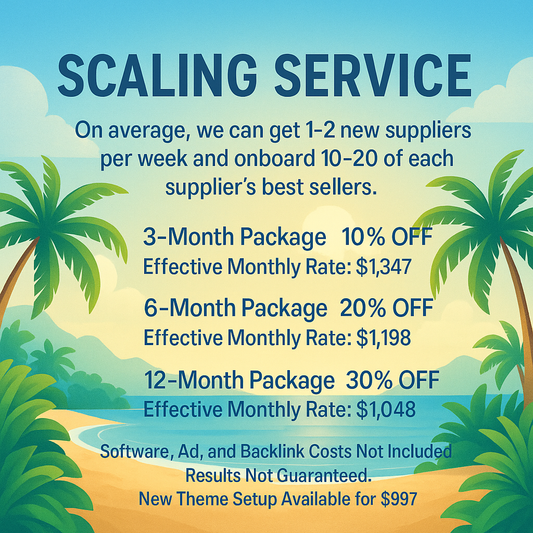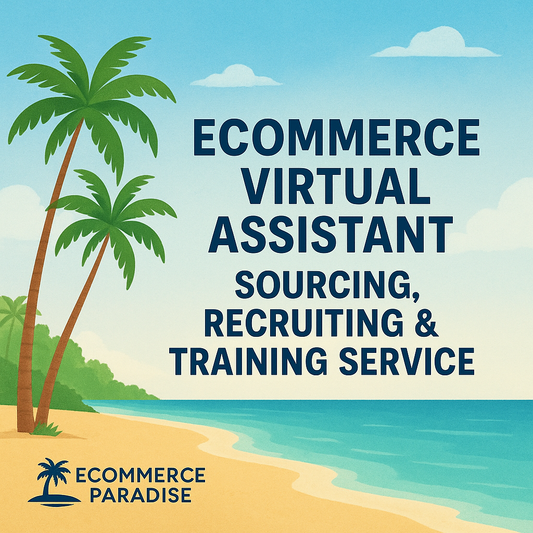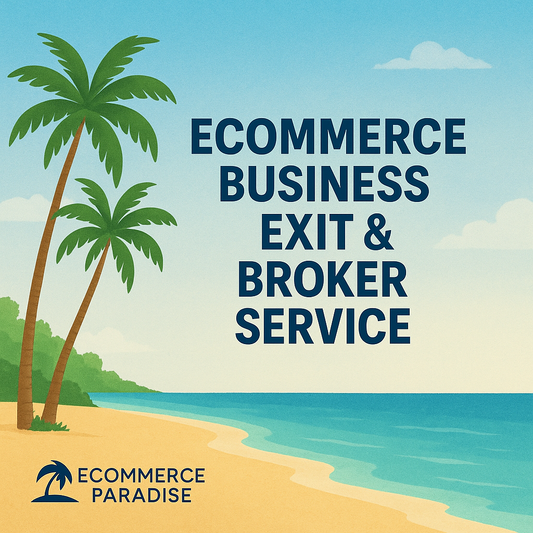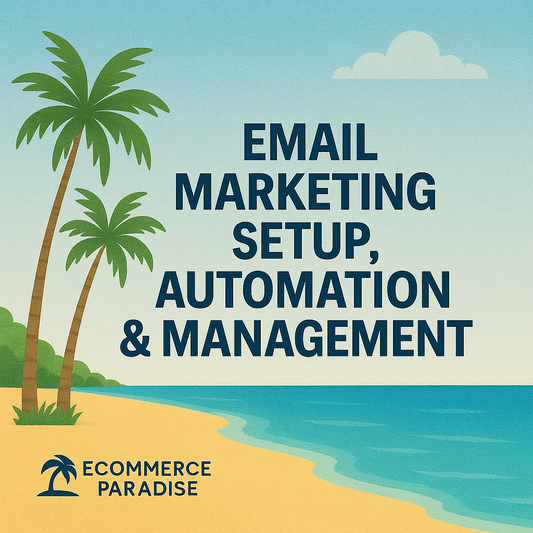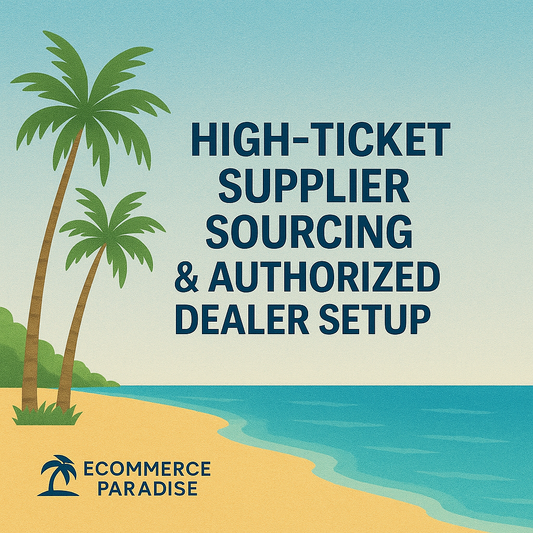
Best Email Service for Business: Top Choices for Professional Communication

Choosing the right email service for business can make a big difference in productivity and communication. The best email service for business is one that combines reliability, security, and user-friendly features. With many options available, it is important to consider what each service offers and how it fits a company's needs.
A good email service enhances not just communication, but also the overall workflow. Many businesses require tools for collaboration, easy access, and integration with other applications. Understanding these essential features helps businesses select the right email solution.
Security is another crucial aspect. Protecting sensitive information should be a top priority for any organization. The best email services provide strong security measures to keep data safe from threats.
Quick List: Best Email Service for Business
- ProtonMail
- Google Workspace
- Microsoft Outlook
- Zoho Mail
- Yahoo Mail
- Microsoft 365
- Fastmail
- iCloud Mail
- Mozilla Thunderbird
- Neo Mail
- Inbox.com
Evaluating Your Business Email Needs
Choosing the best email service requires careful thought about various factors. This includes business size, email volume, security needs, and integration with existing tools. These points are crucial for making an informed decision.
Analyzing Business Size and Email Volume
A business's size significantly impacts its email needs. A small business might handle fewer emails, while a larger company could have a high volume of communications daily. This volume informs what features are essential.
For small businesses, a basic plan may suffice. They need a platform that allows for essential features like a custom domain and user-friendly design. Larger companies may require advanced features, such as collaboration tools and automation.
For example, ecommerce businesses might send large numbers of promotional emails. They need an email service that can manage mass email distribution efficiently.
Considering Security and Privacy Requirements
Security and privacy are paramount for any business. Protecting customer data is not just a best practice; it is often a legal requirement. Businesses must choose email services that offer strong security features.
Look for services that provide end-to-end encryption, two-factor authentication, and compliance with data protection laws like GDPR. These features ensure that sensitive information remains secure during communication.
Ecommerce and high-ticket dropshipping businesses deal with financial data. Therefore, they should prioritize email services that offer strong security measures to safeguard transactions and customer information.
Integration with Business Tools and Ecommerce Platforms
Integration with existing tools enhances productivity. An email service should work seamlessly with other business applications like CRMs, project management tools, and ecommerce platforms.
For businesses that utilize Shopify or WooCommerce, selecting an email service that connects with these platforms can streamline operations. This integration allows for automatic updates, customer communication, and targeted marketing campaigns.
Additionally, businesses benefit from analytics to track email performance. Services that provide these integrations can simplify workflows and enhance customer engagement, making them valuable for any business aiming for growth.
Top Email Service Providers for Business
Choosing the right email service provider is crucial for business communication. Each option offers unique features suited to different needs like security, usability, and integration with other tools.
ProtonMail: Security-Focused Emailing

ProtonMail is known for its strong focus on security and privacy. It uses end-to-end encryption, meaning only the sender and receiver can read the emails. This is great for businesses that handle sensitive information.
The interface is simple and user-friendly. Users can easily manage their emails and folders. ProtonMail also offers features like self-destructing messages and the ability to send encrypted emails to non-ProtonMail users.
Pricing options vary from a free basic plan to several paid tiers for additional features, making it a flexible choice for businesses of all sizes.
Google Workspace: Google's Ubiquitous Email Service

Google Workspace (formerly known as Gmail) is one of the most popular email services worldwide. It integrates seamlessly with other Google services like Google Drive and Google Calendar. This makes it easy for teams to collaborate on projects.
The platform offers a clean interface, advanced spam filtering, and powerful search capabilities. Businesses can create a custom domain with Google Workspace, enhancing their professional image.
Google Workspace's robust security features include two-factor authentication and phishing protection. Storage options range from 15 GB on the free plan to larger amounts on paid plans.
Click here to start your free trial with Google Workspace today!
Microsoft Outlook: Professional Email and Calendar

Microsoft Outlook combines email, calendar, and task management in one platform. This integration is beneficial for managing business schedules and correspondence.
Outlook offers a professional look and feel, making it suitable for formal communication. It connects easily with Microsoft Office apps, allowing teams to work on documents without switching platforms.
Features like focused inbox, calendar sharing, and customizable folders help keep everything organized. The pricing for Outlook is competitive, especially for organizations using Microsoft 365, which offers additional collaboration tools.
Zoho Mail: Custom Email Address for Your Business

Zoho Mail provides a unique option with custom domain email addresses. This helps businesses establish their brand identity.
The platform offers a clean interface and does not show ads. Zoho Mail also emphasizes email privacy and security. It has features like offline access and advanced filters to manage emails effectively.
Pricing is flexible with a free plan for individuals and various paid options for businesses. Zoho's integration with other Zoho applications can further streamline operations.
Click here to start for free with Zoho and streamline your business!
Yahoo Mail: An Alternative Option

Yahoo Mail remains a viable option for businesses seeking an email provider. It offers ample storage space and a user-friendly interface.
Yahoo Mail includes integrated calendar features and customizable themes. Users can organize their inbox with folders and filters, making it easier to manage large volumes of emails.
While Yahoo Mail may not have the robust business features of other providers, it is free to use with an option to upgrade for additional features and storage. It may suit small businesses or those with lighter email needs.
Microsoft 365: Comprehensive Business Solutions

Microsoft 365 combines Outlook with a suite of productivity tools, including Word, Excel, and Teams, making it an all-in-one solution for businesses. It’s ideal for teams that need robust collaboration features alongside email services.
With advanced security features like data loss prevention and ransomware detection, it ensures your business communications remain secure. Its cloud integration allows seamless access to files and emails from anywhere.
Microsoft 365 offers various pricing plans, catering to small businesses and enterprises alike.
Fastmail: Privacy and Customization

Fastmail is a straightforward email service focused on speed and privacy. It allows businesses to create custom domains and manage email accounts with ease.
Features like custom filtering, calendar integration, and offline access make it a reliable choice for professionals. Additionally, Fastmail emphasizes user privacy, ensuring data is not used for targeted advertising.
Its pricing plans are affordable, offering flexibility for small and mid-sized businesses.
iCloud Mail: Apple’s Reliable Ecosystem

iCloud Mail is designed for businesses and individuals already immersed in Apple’s ecosystem. Its seamless integration with macOS, iOS, and iCloud Drive simplifies file sharing and management.
With features like VIP mailboxes, automatic syncing, and built-in spam protection, it offers a clean and efficient email experience. However, iCloud Mail is best suited for teams using Apple devices.
The service is included with iCloud storage plans, making it a cost-effective option for Apple users.
Mozilla Thunderbird: Open-Source Email Solution
Mozilla Thunderbird is a free, open-source email client known for its customizability. Businesses can tailor its features with add-ons and extensions to suit their specific needs.
It supports multiple email accounts, calendar integration, and advanced spam filtering. Thunderbird's open-source nature ensures there’s no compromise on privacy.
While it lacks native cloud storage, it’s a robust choice for businesses looking for a cost-effective and secure email solution.
Neo Mail: Minimalistic and Efficient

Neo Mail is a simple, lightweight email platform designed for efficiency. It focuses on core email functionalities, offering a clean interface with minimal distractions.
It supports features like message tagging, quick search, and customizable layouts. Neo Mail is ideal for businesses that prefer a no-frills, dependable email service.
Its pricing plans are straightforward and affordable, making it accessible for small teams and startups.
Click here to claim your FREE 1-month Neo Mail trial and upgrade your email experience today!
Inbox.com: Budget-Friendly Email Service

Inbox.com provides a reliable email solution with ample storage and essential features. It offers POP3 access, spam protection, and advanced email filtering.
This service is a practical choice for businesses seeking an affordable, no-nonsense email platform. While it lacks some advanced tools, its straightforward functionality appeals to budget-conscious teams.
Inbox.com includes free and paid plans, with the latter offering enhanced storage and support.
Key Features to Look For
Choosing the right email service for a business involves evaluating several important features. These features can greatly impact communication efficiency and overall productivity. Attention to detail in each aspect can help in making an informed decision.
Reliability and Uptime Guarantees
Reliability is crucial for any email service. A good provider should offer uptime guarantees of 99.9% or higher. This means the service is available almost all the time, with minimal interruptions.
Businesses depend on timely communication. If an email service is frequently down, it can cause delays in important matters. Therefore, checking the service's track record for reliability can save future headaches.
Look for detailed service level agreements (SLAs). These documents outline what the provider promises regarding uptime and how they handle outages. Understanding these terms helps businesses assess the credibility of the service.
User Interface and Accessibility
An easy-to-use user interface can significantly boost productivity. Email services should have a clean and straightforward layout. This allows users to navigate easily and access features without confusion.
Accessibility is also key. Providers should support multiple platforms, including desktops and mobile devices. This flexibility ensures that users can check emails anytime, anywhere.
Additionally, customizable features enhance usability. Options like category tabs or email filters help users manage their inboxes effectively. This can reduce clutter and improve response times, which is essential for maintaining professional communication.
Email Deliverability Rates
Email deliverability rates indicate how often emails reach their recipients' inboxes. A high deliverability rate means fewer emails end up in spam or junk folders. This feature is essential for businesses that rely on email marketing or client communications.
Providers should have strong practices to maintain high deliverability. This includes proper authentication methods like SPF, DKIM, and DMARC. These measures help establish trust with email servers.
Businesses should also consider a provider’s sending reputation. A good reputation often leads to better deliverability rates. Researching past customer experiences can provide insights into how well a provider performs in this area.
Customer Support and Service Quality
Effective customer support is vital when issues arise. A reliable email service should offer multiple support options. Look for 24/7 assistance through chat, email, or phone, which ensures quick resolution of problems.
Response times are another important factor. Customers appreciate timely and knowledgeable answers. Check reviews to gauge how other users rate the support quality.
Additionally, service quality must include resource availability. Many providers offer robust help centers with guides, FAQs, and tutorials. This proactive support can help users solve common issues independently, enhancing the overall experience.
Advanced Capabilities
Businesses benefit from email services with advanced features. These capabilities enhance productivity, security, and insight, making them essential for modern operations.
Automation and AI-driven Features
Automation tools save time by handling routine tasks. Features like auto-responders can manage customer inquiries, ensuring timely replies even when staff is unavailable.
AI-driven features analyze email patterns. This analysis helps prioritize messages, suggesting which emails to address first. Some services use machine learning to automatically sort incoming emails into specific categories.
Integration with calendar and task management tools further increases efficiency. These functions create a seamless workflow that keeps teams organized and on track.
Advanced Security Measures
Security is critical for business communications. The best email services offer robust security features such as end-to-end encryption. This process ensures that only the sender and recipient can read the messages.
Spam filtering protects from unwanted emails that could contain phishing attempts. Multi-factor authentication adds an extra layer of security, requiring additional verification before access.
Regular security updates ensure that protections remain strong against new threats. Services may also offer data loss prevention tools to prevent sensitive information from being shared unintentionally.
Analytical and Reporting Tools
Data analytics helps businesses track email performance. Metrics such as open rates and click-through rates provide insights into customer engagement.
These tools help identify trends over time, allowing companies to adjust their strategies for better results. Some services offer customizable reports, highlighting key performance indicators that matter most to the business.
A/B testing features enable users to test different email formats. This testing determines which designs or subject lines are more effective, improving future campaigns and overall email strategies.
Pricing Structures
Choosing the right email service for business involves looking closely at pricing. Different services offer various pricing tiers, which can affect the total cost, especially when comparing free and paid options.
Understanding Pricing Tiers
Email services typically provide multiple pricing tiers. Each tier often includes different features and limits.
For example, a basic plan may offer limited storage and basic support while higher tiers provide increased storage, advanced security features, and premium support.
Common tiers might be:
- Basic: Limited storage and features
- Standard: More storage and added features
- Premium: Maximum storage and advanced tools
Businesses should evaluate their needs to select a plan that offers the best value based on required features.
Assessing Total Cost of Ownership
Total cost of ownership includes not just the subscription fee but also potential hidden costs. These costs can vary based on the plan selected, additional features, and the size of the team.
Business owners should consider:
- Setup fees
- Migration costs if switching providers
- Training expenses for staff
- Future upgrades
Taking all these factors into account helps in estimating the long-term expenses associated with an email service.
Free vs Paid Email Services
Free email services can be tempting due to the lack of upfront costs. However, they may come with limitations that can impact business operations.
Free services often include:
- Limited storage
- Ads displayed in the interface
- Basic security features
On the other hand, paid plans frequently offer:
- Larger email storage
- Custom domain addresses
- Enhanced security options
Evaluating the pros and cons of free versus paid services can help businesses determine what best fits their needs and budget.
Implementation and Migration
Switching email services can be a big change for any business. It takes careful planning and execution to ensure a smooth transition. Focusing on timing, managing the technical aspects, and preparing employees will help make the process easier.
Choosing the Right Time to Switch
Timing is crucial when changing email providers. Businesses should consider several factors before making the move.
- Avoid Busy Periods: Plan the switch during a slow season. This reduces disruptions in daily operations.
- Schedule Maintenance: Early mornings or weekends may be ideal. Fewer employees will be affected during these times.
- Analyze Current Usage: Look at email traffic and usage patterns. This helps identify moments of low activity.
It’s important to communicate the timeline clearly to all employees. Giving everyone advance notice will allow them to prepare and adjust their schedules accordingly.
Managing Email Migration
Migrating email requires a strategic approach to minimize data loss and downtime. Follow these essential steps to ensure a successful transfer:
- Backup Data: Always create a complete backup of existing emails. This serves as a safety net in case of issues during migration.
- Select Migration Tools: Many email services provide tools for data migration. Choose the right ones based on your needs.
- Test Before Full Migration: Run a small test migration first. This can reveal potential issues without affecting everyone.
- Monitor the Process: Keep track of the migration progress. This helps in addressing problems quickly.
Establishing a clear plan and timeline for migration will aid in keeping everything organized throughout the process.
Training and Onboarding Employees
Training employees on the new email system is key for adoption. Here are several tips to ensure everyone feels comfortable with the change:
- Provide Hands-On Training: Practical sessions can help employees learn the system more effectively. Include features and important functions they will use daily.
- Create Easy Reference Guides: Distribute quick-start guides or cheat sheets. These references simplify the transition and reduce confusion.
- Offer Ongoing Support: Set up a help desk or a point of contact for questions. Continuous support encourages employees to adopt the new system fully.
Regular follow-ups and feedback sessions can help improve the training process. Encouraging an open dialogue will ensure that employees feel confident with the new system.
Making the Decision
Choosing the best email service for a business is a significant task. It requires careful assessment of various providers, testing options, and aligning features with specific business needs.
Taking Advantage of Trials and Demos
Many email service providers offer free trials or demos. This is a valuable opportunity to explore features firsthand. Businesses can test usability, interface, and integrations with other tools.
During a trial, users should pay attention to performance and customer support. It’s important to simulate daily tasks to see how well the service meets needs. Taking these opportunities can provide insights that numbers alone cannot.
Prioritizing Your Business Needs
Identifying specific business needs is crucial. Businesses will benefit from outlining what features are most necessary, such as increased storage, advanced security, or collaboration tools.
For example, a company focusing on remote work may prioritize services with strong team collaboration features. A small startup may emphasize affordability and ease of use. Clearly defining these priorities guides the decision-making process and helps choose the best email service.
Conclusion
Choosing the best email service for business is essential for effective communication. It can improve productivity and enhance collaboration.
Factors to consider include:
- User Interface: A clean and simple design helps users navigate easily.
- Storage Space: More storage allows for better management of emails and files.
- Security Features: Protecting sensitive information is a top priority.
- Integration Options: Software that works with other tools can streamline processes.
Services like G Suite, Microsoft 365, and Zoho Mail are popular. Each offers unique features suited to different business needs.
A good email service can impact customer interactions and internal communication. Businesses should evaluate options carefully to find the best match for their goals.





